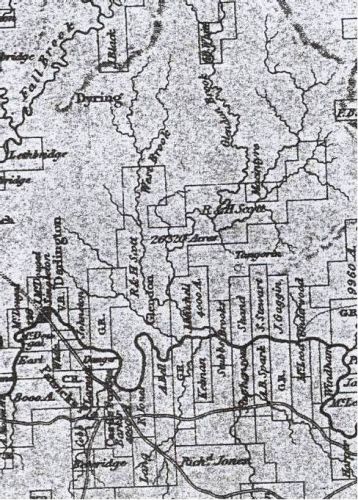Joseph Underwood
Map 4
Joseph Underwood was born in 1779 at Bermondsey, London, son of Thomas Underwood and his wife Mary, nee Forster. [1]
Arrival in the Colony
Joseph Underwood arrived in New South Wales with his wife Charlotte and two sons on the Sydney Cove in June 1807. The Sydney Cove was part owned by his brother James Underwood a former convict who arrived on the Admiral Barrington in 1791. The other owners being Henry Kable and Simeon Lord.On board the Sydney Cove in 1807 were 109 female convicts and four boys. Free passengers included Mr. Mills of the Royal Navy who later became harbour master at Port Dalrymple, Mr. Samuel Foster and several other settlers. Sarah Bird arrived as a free passenger. Soldiers of the N.S.W. Corp. also came on the Sydney Cove.
Business Activities
Joseph Underwood brought with him letters of introduction and became a merchant in Sydney. He invested in the sealing industry and owned several vessels often joining them on voyages. One, the Campbell Macquarie was captained by Richard Siddons. Another, the Elizabeth and Mary which Joseph Underwood purchased from Thomas Abbott and Samuel Thorley in 1814, was used for many years to carry cedar and coal from the Hunter River.Family Life
Charlotte, the first wife of Joseph Underwood died in February 1818 and Joseph returned to England on the Surry in 1819 where he married Mrs Elizabeth Lang, who was the daughter of the emancipist John Harris.Joseph Underwood abandoned his sea-faring life in 1820.
Land Grant
He was granted 1500 acres of land in 1821 which he took up at the Hunter River in 1822 -To His Excellency Sir Thomas Brisbane K.C.B.
The Memoiral of Joseph Underwood of Sydney
Respectfully Sheweth
That your memorialist obtained from His Excellency the late Govern Macquarie, the enclosed order for fifteen hundred acres of land with the indulgence of four Governmnet men on the stores for six months.
That your memorialist has not had the said land measured to him in conformity with the said order - and begs leave most respectfully to solicit the indulgence that he may take the same at the settlement at Newcastle
And your Memorialist as in duty bound will ever pray, etc
Joseph Underwood
March 7th 1822 [2]
This land adjoined John Gaggin's grant and can be seen to the right on the map below. It is unlikely that Joseph Underwood ever resided on this grant and the land was claimed by James Mitchell in 1834.

In 1826 he purchased for £670 the estate Melville, formerly a grant to William Hicks situated three miles from Wallis Plains. [3]
Death
Joseph Underwood died in 1833 aged 54.References
[1] D. R. Hainsworth, 'Underwood, Joseph (1779 - 1833)', Australian Dictionary of Biography, National Centre of Biography, Australian National University, published first in hardcopy 1967[2] New South Wales, Australia, Colonial Secretary's Papers, 1788-1856, Series: NRS 899; Reel or Fiche Numbers: Fiche 3001-3162
[3] Sydney Gazette 11 February 1826
↑